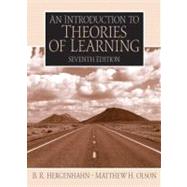
| Introduction TO Learning | |
| What Is Learning? | |
| Approaches to the Study of Learning | |
| Early Notions about Learning | |
| Predominantly Functionalistic Theories | |
| Edward Lee Thorndike | |
| Burrhus Frederick Skinner | |
| Clark Leonard Hull | |
| Predominantly Associationistic Theories | |
| Ivan Petrovich Pavlov | |
| Edwin Ray Guthrie | |
| William Kaye Estes | |
| Predominantly Cognitive Theories | |
| Gestalt Theory | |
| Jean Piaget | |
| Edward Chace Tolman | |
| Albert Bandura | |
| A Predominantly Neurophysiological Theory | |
| Donald Olding Hebb | |
| An Evolutionary Theory | |
| Robert C. Bolles and Evolutionary Psychology | |
| Some Final Thoughts | |
| A Final Word | |
| Table of Contents provided by Publisher. All Rights Reserved. |
The New copy of this book will include any supplemental materials advertised. Please check the title of the book to determine if it should include any access cards, study guides, lab manuals, CDs, etc.
The Used, Rental and eBook copies of this book are not guaranteed to include any supplemental materials. Typically, only the book itself is included. This is true even if the title states it includes any access cards, study guides, lab manuals, CDs, etc.